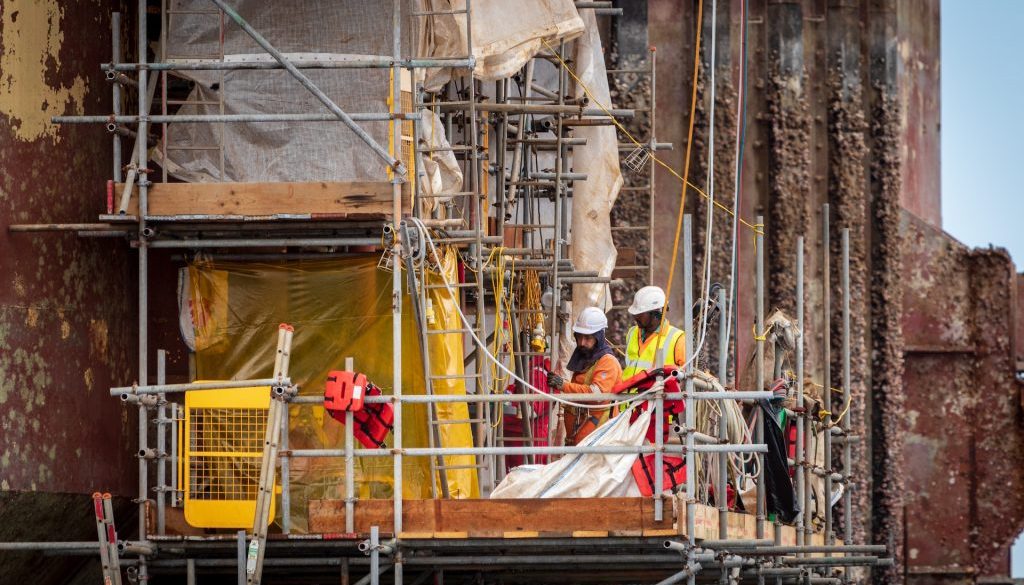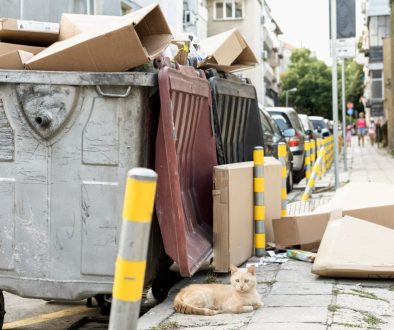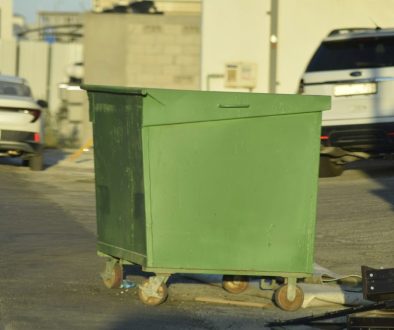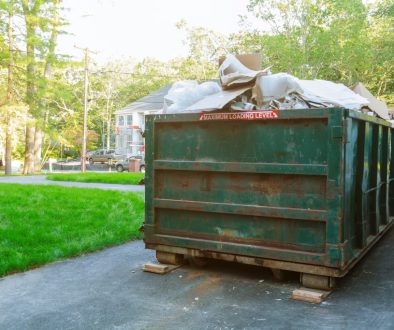Construction waste is an inevitable by-product of construction activities. The construction industry generates significant waste, which might harm the environment if improperly disposed of. Construction companies must implement effective waste management and disposal strategies to address this issue. This article will provide insights into the best construction waste management and disposal tips.
What Is Construction Waste?
Construction waste is material generated during construction, renovation, or demolition activities. This includes concrete, bricks, wood, metals, plastics, and other materials not needed during construction. In the UK, construction waste is classified as non-hazardous or hazardous, depending on its potential impact on the environment and human health.
Best Construction Waste Management & Disposal Tips
Make sure to follow the following tips for effective construction waste management:
1. Develop a Waste Management Plan
The plan should outline the types of waste generated during construction activities and the disposal methods. The plan should also incorporate waste reduction strategies, such as recycling, reusing, and repurposing. By developing a waste management plan, construction firms can control trash production and guarantee that it is disposed of in an environmentally friendly way.
Here’s a list of what should be included in a construction waste management plan for companies:
- Introduction: This should outline the purpose of the waste management plan and provide an overview of the project.
- Waste Reduction Goals: It is crucial to outline the project’s waste reduction goals and the strategies the company plans to implement to achieve them.
- Site Waste Assessment: It is necessary to evaluate the types and amounts of on-site waste comprehensively.
- Waste Management Hierarchy: The waste management plan should detail the hierarchy the company intends to follow, prioritising waste reduction, reuse, and recycling over disposal.
- Waste Management Procedures: This should outline the procedures for handling waste on-site, including storage, handling, transportation, and disposal.
- Waste Management Monitoring: It is essential to include a monitoring plan for waste management procedures to ensure they comply with the plan.
- Training and Communication: The waste management plan should provide an outline for the training and communication plan to ensure that workers and stakeholders comprehend the waste management plan and their respective responsibilities in executing it.
- Waste Reporting: It should outline the procedures for reporting waste generation and disposal data for the project.
- Legal Requirements: Include an overview of the legal requirements for waste management and how the company plans to comply with them.
- Conclusion: To wrap up, summarise the key points of the waste management plan and emphasise the company’s commitment to responsible waste management practices.
2. Identify Hazardous Waste
Properly identifying hazardous waste is paramount in construction waste management, necessitating special handling and disposal. Hazardous waste comprises asbestos, lead, and other substances that could threaten the environment and human health.
Construction companies are responsible for identifying and separating hazardous and non-hazardous waste to guarantee safe disposal following regulations. Hazardous waste must be transported by a licensed waste carrier and disposed of at a licensed hazardous waste facility.
3. Reduce, Reuse, and Recycle
Reducing, reusing, and recycling are essential strategies in construction waste management. By reducing the amount of waste generated, construction firms can cut costs and lessen their environmental impact. Reusing bricks and concrete can also save money and reduce the need for new materials—recycling materials like wood, metal, and plastics.
4. Implement Efficient Site Management
In construction waste management, construction companies must prioritise efficient site management. This can be achieved by implementing various strategies to reduce waste generation.
Examples of such strategies include ordering materials in appropriate quantities, minimizing packaging waste, and maximizing the efficient use of materials. Additionally, site managers are crucial in ensuring that waste is properly segregated and stored and that waste containers are regularly emptied to prevent overflowing.
By adhering to these best practices, construction companies can significantly reduce their environmental impact and contribute to more sustainable practices in the industry.
5. Use a Licenced Waste Carrier
Construction companies must use a licensed waste carrier to transport waste from the construction site to a licensed waste facility. A licensed waste carrier is authorised to transport waste and must comply with waste regulations. Using a licensed waste carrier ensures that waste is disposed of safely and legally, reducing the risk of environmental harm and potential fines.
6. Consider Modular Construction
Modular construction is an alternative construction method that can significantly reduce construction waste. Modular construction involves prefabricated modules constructed off-site and shipped to the construction site. This method reduces on-site waste generation and construction time and costs.
7. Monitor Waste Generation and Disposal
Construction companies must keep accurate records of the types and quantities of waste generated and the disposal methods. This information can be used to identify areas for improvement and ensure that waste is disposed of correctly.
8. Educate Workers on Waste Management
Educating workers on proper waste management practices is crucial to manage construction waste effectively. This involves providing workers with knowledge about the different types of waste generated on-site and the appropriate disposal methods.
Moreover, workers must be trained on strategies for waste reduction, such as reusing and recycling materials, as well as the significance of proper waste segregation. By educating workers on these essential practices, construction companies can significantly decrease the waste generated and ensure that waste is disposed of responsibly.
9. Use Sustainable Materials
Using sustainable materials is another strategy in construction waste management. Sustainable materials are environmentally friendly and can be recycled or reused at the end of their useful life. Using sustainable materials, such as bamboo and recycled plastics, can reduce the amount of waste generated and conserve natural resources.
10. Opt for a Skip Hire
There is abundant construction waste generated from various projects, and managing it can be a huge undertaking. Skip hire is an excellent option if you are looking for an effective way to manage your construction waste. Here are some of the reasons why you should consider skip hire for your construction waste management needs:
- Cost-Effective: The cost of skip hire is often much less than other waste disposal or removal services. It is also a much more efficient process than other methods, which means you can save time and money.
- Convenient: You don’t have to worry about transporting it to a disposal site, as the skip will be delivered to you. This means you can get on with the project without worrying about waste management.
- Environmentally Friendly: Skip hire is an excellent option for companies looking to manage their construction waste in an environmentally friendly manner. Skip hire companies to recycle and reuse as much of the waste as possible, which helps to reduce landfill waste.
- Safe and Secure: It is also a safe and secure way to manage construction waste. Skips are sealed and secured to keep the waste secure and out of sight. This helps to reduce the risk of theft or vandalism.
Skip hire is an excellent option for companies looking for an effective way to manage their construction waste. Skip hire is worth considering if you are looking for a reliable and efficient way to manage your construction waste.
Conclusion
Construction waste management is an integral part of any construction project. Companies should ensure that the waste generated is adequately disposed of or recycled. Companies can help reduce their environmental impact and save money in the long run by taking the necessary steps to manage construction waste properly.
Take a step towards sustainable waste management today! Enviro Skip Hire allows you to explore various skip sizes and aggregates. As a family-run skip hire and aggregate company servicing Staffordshire, we are committed to providing environmentally-friendly solutions for your waste management needs. Contact us now to learn more about our skip hire services and make a booking!




